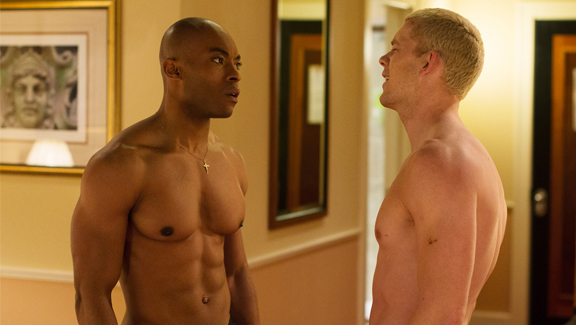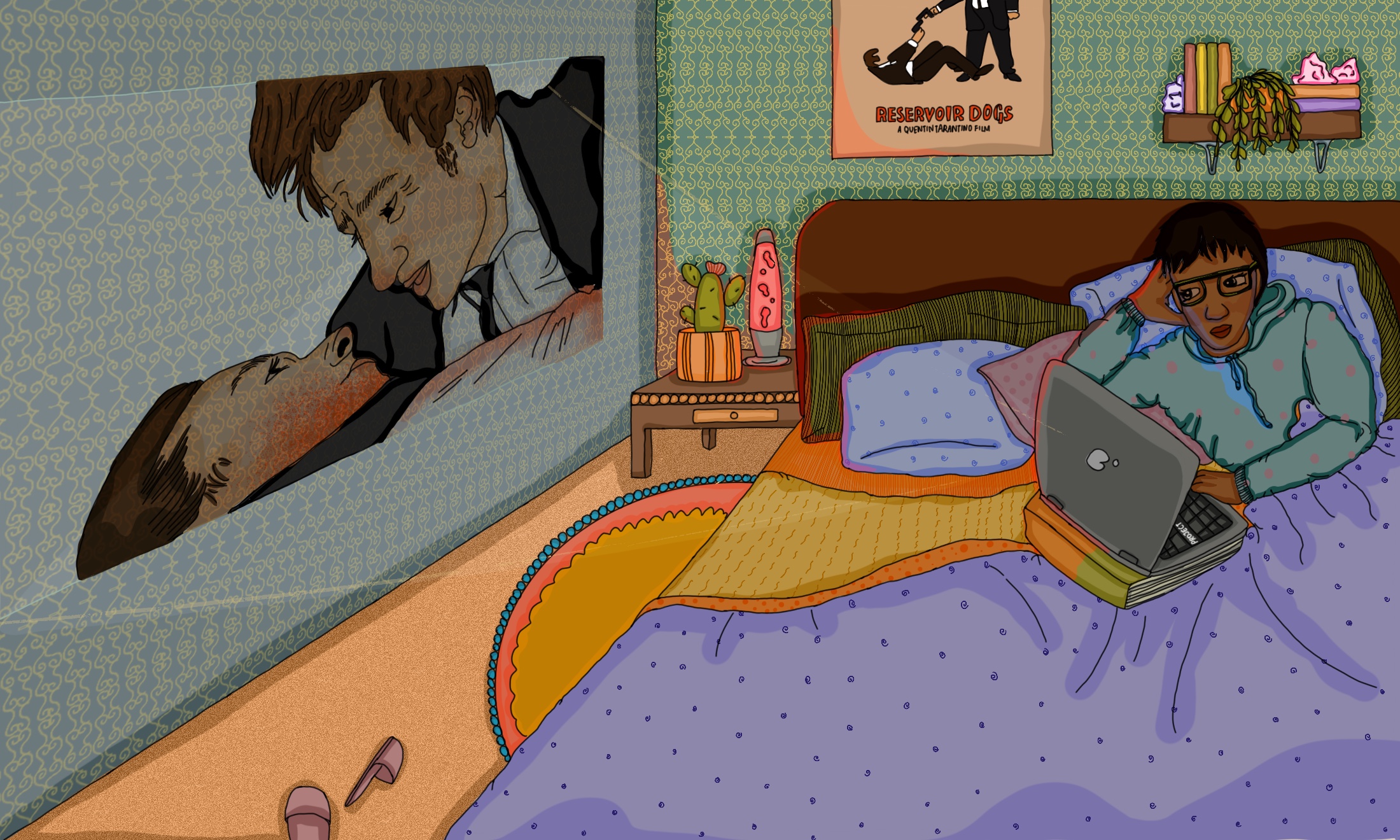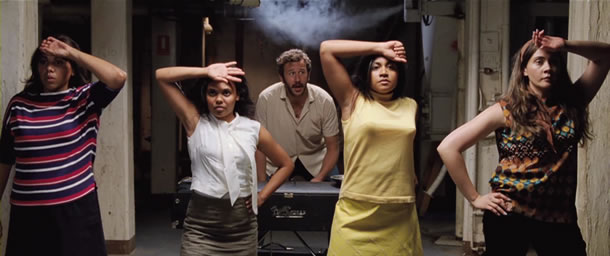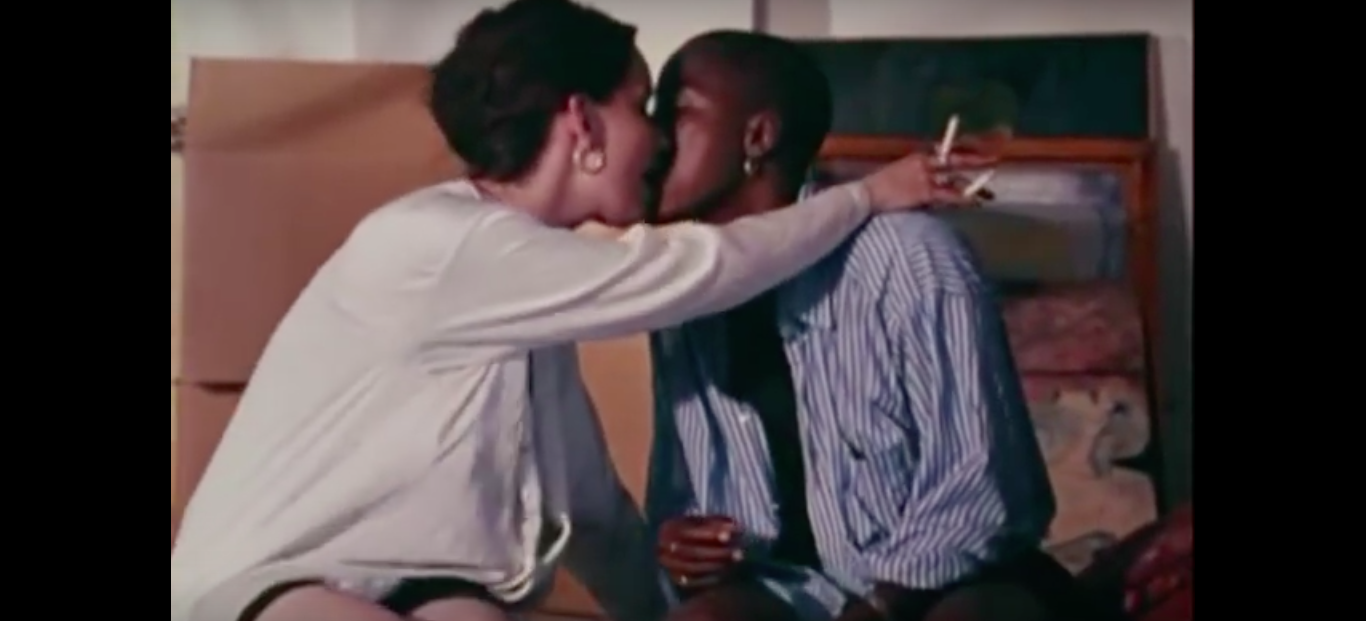
I first heard about The Pass when it premiered at BFI Flare, London’s LGBT film festival, earlier this year. Directed by Ben A. Williams and based on the play of the same name by John Donnelly, which premiered at the Royal Court in 2014, it is a story about a gay premiere league footballer and his journey from teenaged hopeful to world famous star. It stars the always excellent Russel Tovey (Him & Her) and Arinzé Kene (Youngers), who recently gave a wonderful performance as the soul singer, Sam Cooke, in Kemp Powers’ play, One Night in Miami. I was determined to get tickets but almost as soon as they went on sale, they sold out. It was a similar story with the additional screenings, created due to popular demand.
To say that I was looking forward to this film would be an understatement. There have been a modest number of gay, mixed race relationships portrayed on screen over the past year: the ‘Vegan Cinderella’ episode of Easy; the ‘San Junipero’ episode of Black Mirror; an irritatingly coy, did-they-didn’t-they kiss scene between Dizzie and Thor in The Get Down and, of course, PouSoso from Orange is the New Black. All of these TV shows are available on Netflix. I’m not sure that their serial format is coincidental: there seems to be more of a willingness to take risks in TV storytelling than in film, especially with non-stereotypical depictions of LGBT characters. I think these shows are fantastic but because they are all American, I feel a little like I’m watching events happening in a parallel universe. Now we have The Pass, a British addition to my off-the-cuff and by no means exhaustive catalogue.
The film begins in a hotel room in Bucharest: team mates Jason (Tovey) and Ade (Kene) are on the cusp of leaving their football youth academy and spend a restless night counting down to the match that will decide whether or not they have a future in the sport. Then, out of the blue, one man kisses another. It becomes clear that the title is a double entendre, referring to both a pass in football and a sexual advance. These two events will have a seismic impact on Jason and Ade’s relationship and careers.
Williams maintains the three act structure of the original play. It takes place in three hotel rooms, each scene five years on from the last. I’ve read several reviews that criticise this “theatrical” format on screen but I think it works because the film’s action focuses on the interior lives of the characters; the recording of private events in a series of claustrophobic hotel rooms seems fitting.
Russell Tovey gives a career best performance as Jason, the gay footballer at the centre of the film. Jason is a man so deeply closeted and homophobic that he’s not above accusing his team mates of being gay as a bizarre power-play to deflect attention from himself. Both characters seem to be using a cloak of hyper-masculinity to cover their insecurities. They wrestle and play fight, mercilessly take the piss out of their team mates and reminisce about their childhoods, largely spent together. The dramatic tension comes when this façade drops. There are frequent nerve-jangling scenes of the young men wrestling, nearly naked. It’s as if this is the only form of physical intimacy that they deem acceptable.
Kene and Tovey spend such care and attention on communicating the nuances of Ade and Jason’s relationship. These are two young men who have grown up together and consider each other “brothers” but beneath the unacknowledged desire and affection, there is a simmering rivalry as only one of them can be signed. On screen, we see the shifting power dynamics in this complex relationship and the effect that factors such as class, education and race have on the slippery, nebulous concept of being “one of the lads”.
When I first saw The Pass, I thought Ade came across as an oddly passive character. He’s regularly mistreated by Jason and other team mates but he seems to absorb it in silence. Initially, I was annoyed at his lack of confidence or tenacity, particularly in an excruciating scene involving blackface. However, thinking about that scene made me remember racist and ignorant incidents from my childhood. When I recall the way I responded, it was always with stunned silence at first and anger later, both at the event and myself for not having a rapid, withering comeback. Keeping this in mind on my second viewing, I was more appreciative of Kene’s nuanced portrayal of Ade as an insecure late teenager, trying to figure out how to carry himself in the world.
Donnelly’s script is funny, sharp and well-observed, giving his characters space to grow and change throughout the drama. One of the lines that I find most troubling is when Jason growls, “if I say I’m not gay, I’m not gay”. Clearly these are words that he lives by but they point to gathering danger in his future. He becomes increasingly angry, broken and manipulative. A frightening man plummeting down an abyss. Strong supporting roles are provided by Lisa McGrillis as a complicated one night stand and Nico Mirallegro as a naïve and star-struck room service attendant. These characters, too, are believable as real people not ciphers.
It is a credit to everyone involved, not least Donnelly, the screenwriter, that the storytelling is bold and brave. The first time I saw this film, I felt like I was watching something rare and dangerous, as if everyone who made the film took a risk, just by showing up to filming. The last time a film made me feel like that it was because I was secretly watching the Watermelon Woman after school, tensed and ready to turn it off if my mum came home from work early.
Williams’ confident direction makes The Pass feel more like a thriller than any romance or buddy movie, especially within the deeply homophobic footballing culture that Jason and Ade are part of. The Pass can be read in many different ways: as a comment on toxic masculinity and celebrity culture; an exploration of the difference between happiness and success; a love story; a personal tragedy and also a cautionary tale about not taking the people you love for granted. Somehow, it’s all of these things at once but none of them in particular. Ultimately, it’s about the effect that repression and sacrifice have on Jason and Ade’s relationship over time. I have seen this film twice and it definitely repays multiple viewings. Seek it out because it’s one of the best films of 2016.







